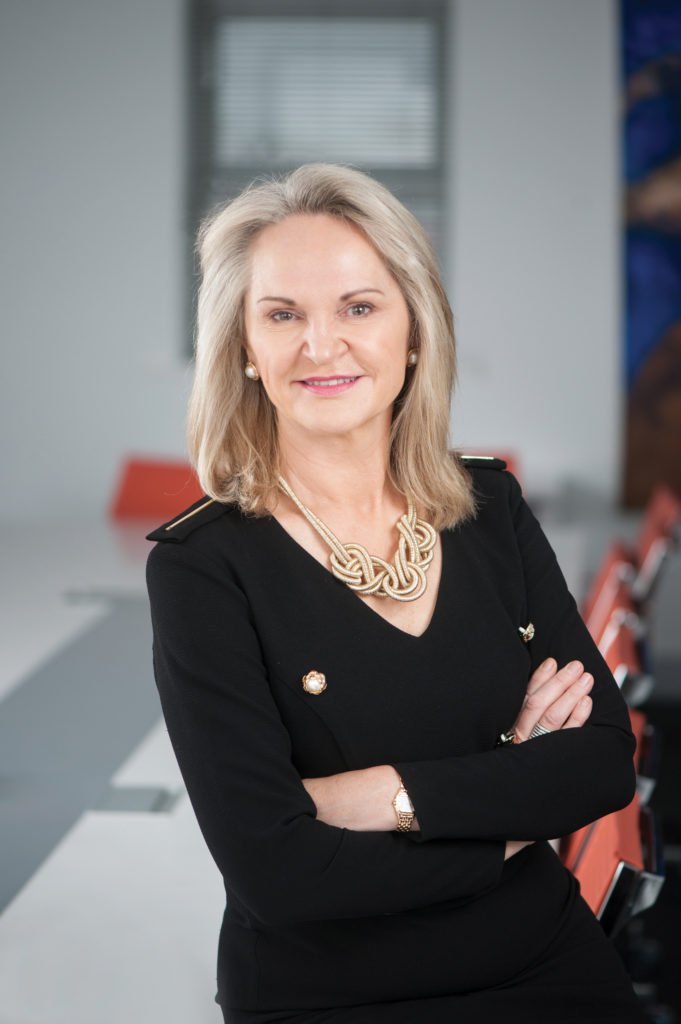Niamh Cahill speaks to Prof Helen Whelton, Head of the School of Medicine and Health at University College Cork (UCC), about her passion for research and plans to increase clinical research in Ireland to improve patient outcomes
Great advances have been made in boosting clinical research activity in Ireland in recent times, but there is still room for improvement, according to Prof Helen Whelton, Head of the School of Medicine and Health at University College Cork (UCC).
The Cork native believes research provides healthcare professionals and policy makers with the necessary information to make informed, evidence-based decisions in healthcare to ultimately help improve patient outcomes.
“We do about a fifth of the clinical research that hospitals in Denmark do,” Prof Whelton told the Medical Independent (MI).
“In Ireland we don’t do enough clinical research. Why is that a problem? Well, in Denmark they do five times the number of clinical trials in the health service compared to us. So, we need to develop a better infrastructure for that.
“It’s been shown that research-active hospitals produce better patient outcomes. That’s not just for patients enrolled in trials. The research culture in a hospital engenders a spirit of enquiry, careful monitoring and recording, because for research purposes you have to do that and that tends to fuse out into the culture in the hospital.”

Infrastructure
UCC has a clinical research facility which supports clinical trials in hospital; however, Prof Whelton maintains that much more research could be undertaken with improved infrastructure.
“I have consultants who tell me they could do twice the amount of research they’re doing if they had the space to do it,” noted Prof Whelton, who was appointed to her role at UCC over a year ago.
Because of this, she is working to increase research activity in healthcare for patient benefit.
Prof Whelton, who grew up on a farm near Fermoy, returned to Cork from the UK in October 2017 to take up the position at UCC, and that of Chief Academic Officer to the South/South West Hospital Group (SSWHG). She also sits on the SSWHG management team.
Having so many strings to her bow means she is ideally placed to bridge the research and education gap between UCC and the SSWHG.
Her overall priority is “increasing research for patient benefit” and improving partnership and communication between the university and health service.
Prof Whelton believes the roles are “tremendously effective from the point of view of understanding the needs and strategic direction and operational working of the Hospital Group”.
At the moment both the university and the SSWHG are each developing separate strategies for the future.
“I’m in parallel developing the College of Medicine and Health strategy, which includes crowdsourcing, where we look at the ideas of staff. We’ve had 300 staff members feeding ideas into that; constructive, positive ideas,” Prof Whelton revealed.
“There are a lot of positive things happening in the college and in the health service, but I think we don’t have half enough positive communication. Both organisations are engaged in lean management for instance… but you rarely hear about these things.”
Prof Whelton said the new strategy will have to “crystalise how we’re going to ensure we keep those hospitals [in SSWHG] together working with us and how we communicate adequately or efficiently with them and how we make sure staff in those hospitals feel the university is of value to them – that’s a big thing for us.
“Those hospitals that are university hospitals should clarify what that means for them and for us,” she said, before adding: “It is working very well, but we can always do better.
Appointments
As part of developments to improve education and research, two full-time training directors are being appointed within the Group.
Paid by the HSE National Doctors Training and Planning (NDTP) unit, the directors will be stationed in Waterford and Cork, but their remit will be Group-wide.
“They will ensure each hospital has a training committee and that there are standard induction procedures for new staff,” Prof Whelton explained.
The ‘training leads’ will implement and support best practice within the Group and will be “at the interface in terms of training with the hospital”.
Reporting to Prof Whelton, the directors will have administrative support and use standard operating procedures. A director has already been appointed in Waterford, while the Cork role is due to be filled shortly.
Outside of training, Prof Whelton is keen to increase research-led appointments within the university and clinical settings.
There are plans this year to utilise philanthropic funding to encourage Irish-trained doctors practising abroad to return to Cork.
“A lot of Irish trainees go abroad… we have a tremendous resource out there. Ensuring we can recruit these people back to help the development of our service here is really important,” Prof Whelton maintained.
“We’re always looking for ways to recruit people back, but obviously they have to be funded. So the big priority for us in 2019 will be philanthropy and identifying funds to support these developments. We have big ambitions in terms of developing research here.”
Research
As part of the plans, the college’s first ever Research Impact Anthology was published recently.
Titled The Research Impact Anthology – Research for a Healthier Future, the brochure presents 42 case studies of research undertaken through the college, and further editions are planned in the future.
“The research anthology provides us with something to give potential funders to say ‘this is what we’re capable of, and even more’,” Prof Whelton explained.
It will also serve to help improve communication and form bridges within healthcare circles locally, nationally and internationally, she believes.
The brochure champions world-leading research underway in Cork and the many successes of research collaborations to date.
One such success story is that of APC (Alimentary Pharmabiotic Centre) Microbiome Ireland, which was established in UCC and is now considered to be among the top five such centres in the world.
The benefits of such centres, not only for patients, are enormous, as this quote from the brochure demonstrates.
“In addition to having a positive influence on patients’ lives, APC research has contributed to the local economy by anchoring existing manufacturing jobs, by the creation of hundreds of new high-tech jobs and by attracting foreign direct investment.”
In 2019 Prof Whelton is hoping to shine a light on cancer research.
The college has appointed a Prof Gerald O’Sullivan Clinical Chair in Cancer Research-Consultant, named after the now deceased founder of the Cork Cancer Research Centre.
The new chair “will pull together cancer researchers and capture synergy and forge ahead with cancer research here”, Prof Whelton noted.
Research income totalling €28.5 million was generated at UCC in 2017 and this figure increased in 2018 (Prof Whelton did not yet have a figure for 2018).
Funding comes from many sources, including Science Foundation Ireland (SFI), the Health Research Board (HRB), Wellcome Trust, UK charities, philanthropists and donors, Prof Whelton said.
Due to her extensive background in dentistry and keen interest in increasing research, Prof Whelton, along with all her other roles, is also Principal Investigator of a large EU Horizon 2020 €6 million grant exploring the use of big data in dentistry, involving eight national and private insurers in six EU countries.
Local developments
Research activity requires space and infrastructure to flourish, which is partly why moves are afoot to introduce a new hospital, UCC clinical medical school, health innovation hub and dental school in Cork.
Prof Whelton is hoping that the construction of a second elective hospital will provide the much-needed room for clinical research activity to thrive.
Minister for Health Simon Harris has put together a group to consider site selection for the hospital.
“In parallel, the university has a big capital investment plan of about €60 million, funded by the European Investment Bank (EIB),” according to Prof Whelton.
The EIB loan will be used to build a new clinical medical school, which will be located on the campus of Cork University Hospital.
Prof Whelton said the new school will enhance the student learning experience and help the quality of teaching.
A design team is due to be appointed in the next couple of months for the clinical medical school and Prof Whelton hopes the school will be built within three years.
Further developments are planned at the university’s sportsground at Curaheen.
“We plan to build a health innovation hub building on the sportsground site and as we do that we will move the sports facilities to an adjacent site. The sod will be turned in February on that. The campus will be home to the new school of dentistry too,” outlined Prof Whelton.
If all of the plans are realised, an even brighter future awaits clinical research activities in Cork.
Aligning her passion for research with a keen enthusiasm to succeed in the role, Prof Whelton is clearly fully committed to her position and to improving research opportunities for clinicians.
“It’s that potential to bring that all together, to make a difference, that attracts me to the job.”













Leave a Reply
You must be logged in to post a comment.